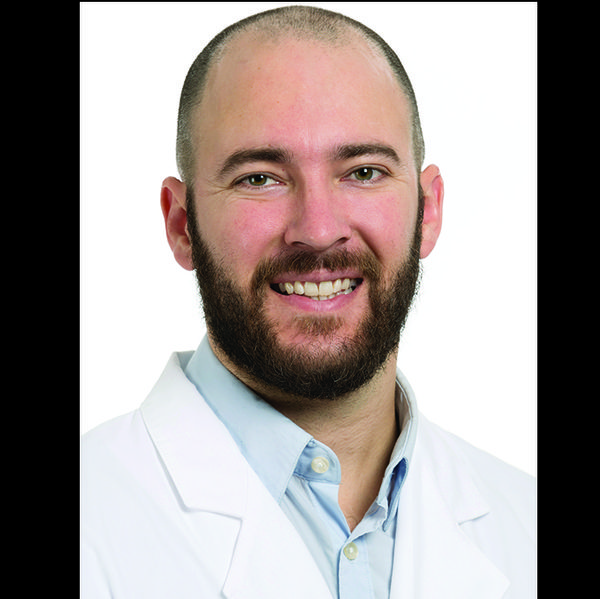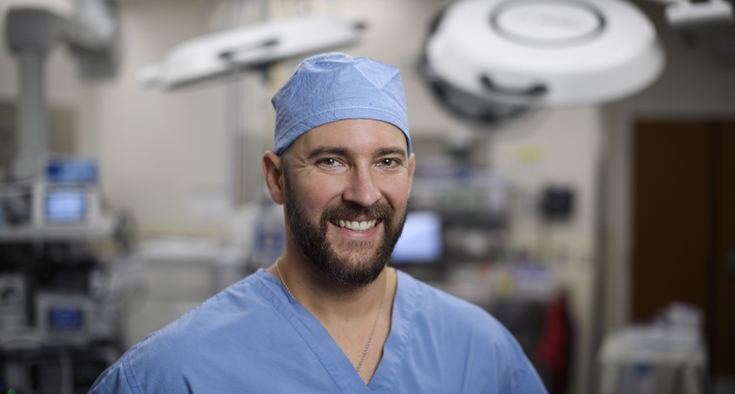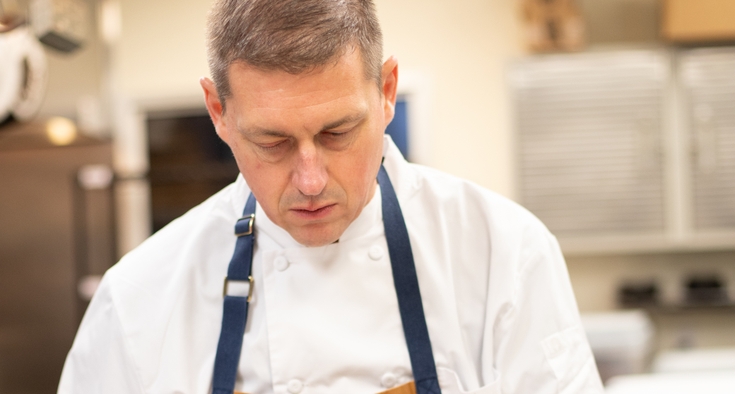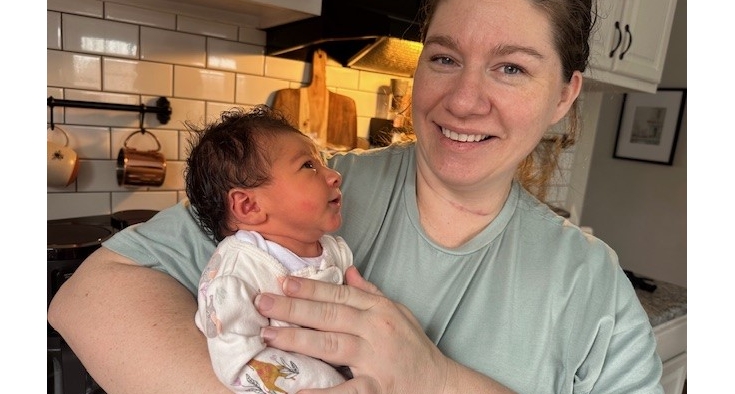Dr. Gregory Imbarrato is a virtuoso in the operating room, leading complex brain surgeries as a cerebrovascular neurosurgeon at Novant Health Brain & Spine Surgery - Cotswold in Charlotte.
He’s also a doctor of osteopathic medicine, which emphasizes a holistic approach to caring for patients.
At home, things aren’t quite as predictable. He’s a dad to four kids under age 6. Imbarrato talked with Healthy Headlines* about how faith, family, and a fascination with the brain led him to his life today.
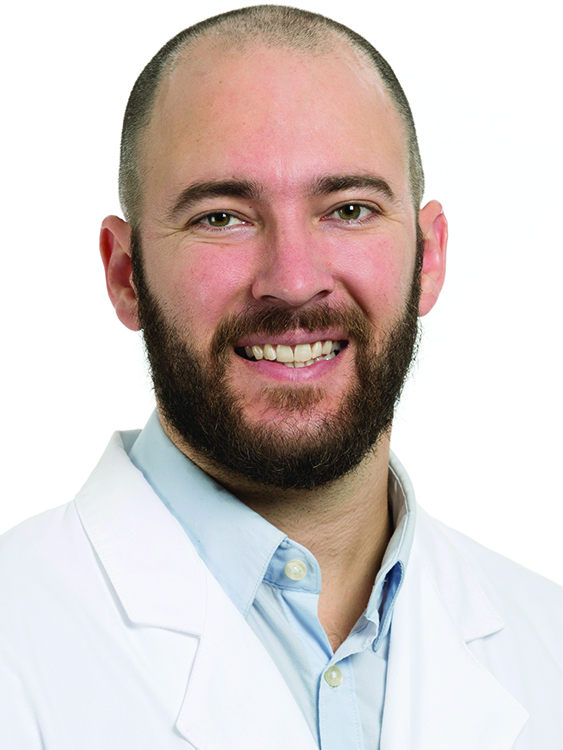
I grew up in New York, about an hour north of New York City. My father is a family doctor who still practices. Our town, Goshen, had maybe 10,000 people, and the town that he practiced in next to us was a little bit bigger than that. When people met me and knew him, they’d always say, ‘Such a great doc. He’s such a kind, compassionate individual.’ I assumed medicine is supposed to be done with kindness and compassion.
After I earned an undergraduate degree from a small liberal arts college, I took a year off before medical school to be really sure that’s what I wanted. My father does a lot of medical mission work. In my year off, I traveled to Central America and stayed with the regional director for Global Health Outreach, a subsidiary of Christian Medical and Dental Associations. They do a lot of short-term medical aid.
I helped coordinate some of the medical trips. Physicians would work in trailers in rural areas of Nicaragua and Honduras. One doctor did facial reconstructions and other kind of skin work, which was pretty impressive to me. But a lot of it was primary care, treating infections with antibiotics or getting people to a local hospital if there was a life-threatening situation. Seeing medicine practiced in that setting, I got a better sense of what it can be like to really try to help someone. That’s what made me decide that I wanted to be a physician.
Complete neurological care.
Medicine sometimes comes down to maintenance therapies that can help people over a lifetime. Surgery has the possibility of being a fix. I fell in love with the idea of potentially being able to fix a problem. And the first time that I saw a brain in surgery, I was just blown away. I thought, ‘That is so cool. I want to do that.’ The brain is the seat of our emotions, our intellect, all of our cognitive processes. It’s such a small, fragile structure made mainly of fat, and somehow this organ makes us who we are.
I was fascinated not just by open neurosurgery, accessing the brain to remove a tumor or to help a spinal cord injury, but also endovascular work, which is a newer subspecialty. Endovascular procedures are less invasive, where you might go through the wrist or groin rather than opening up the brain.
When a patient has carotid disease, and the blood vessels to the brain are narrow or blocked entirely, sometimes we do an open brain surgery, remove the plaque and sew everything back up. Sometimes the better option is entering through the blood vessels and opening a blocked blood vessel with an angioplasty. That procedure uses a tube with a balloon at the end to gently expand the blocked area. Being able to do both open neurosurgery and endovascular procedures helps ensure I’m making the best decision for the patient.
We had one patient who was 20 weeks pregnant, diagnosed with a tumor in the right frontal lobe of her brain. It was starting to undergo what we call a malignant transformation, meaning that it began as a more benign, low-grade lesion but became more aggressive. We coordinated care with our obstetrics team, and we were able to remove the tumor in its entirety without compromising the fetus. The mom has been doing great.
Another case involved a 40-year-old dad. He began slowly losing function in his right side. He became very hoarse and wasn't able to swallow his food. It turns out he had a huge tumor wrapped around his brain stem invading multiple cranial nerves on that side. The cranial nerves deal with facial expression and your senses, including smell, taste, vision, touch and hearing. It's an incredibly intricate surgery with the invasion of these cranial nerves.
The surgery went well. Initially, the patient continued to have some swallowing difficulties after surgery. But when I asked how he was doing at the two-week follow-up appointment, his wife said, “Are you kidding me? He's been eating cheeseburgers since the second day of rehab.”

Sometimes, in terminal cases, there isn’t much I can do surgically for a patient. But I can still talk to them. I can still listen to what problems they're experiencing, try to get them to the right hands, and pray for them. I do whatever I can to try to help, even if it's not something surgical.
It's a gift from God to have honed our skills standing on the shoulders of giants, all those people who trained me and all the visionaries that have gone before us and really made the field what it is today. For me, the greatest commands are ‘love God’ and ‘love the people around you.’ The more I can maintain my focus on that, the more I'm the best and most capable surgeon that I can be.
I also enjoy teaching and trying to help others. We have incredibly talented professionals on our team, including advanced practice providers, physician assistants and nurse practitioners. They're our front lines and it's great to be able to help in their education.
And yes, I’m married with four young kids. Our oldest son is 5. Our twins, a boy and girl, are 3, and we have a 7-month-old daughter. Life is chaos, but it's a beautiful thing. Being a dad is incredibly fulfilling. It's great to be able to come home to all the love and chaos and joy that kids have over the silliest things.
What do I do in my free time? I don’t know the meaning of those words.
*As told to Andrea Cooper




